assessor training course online
An Assessor Training Course Online equips individuals with the skills and qualifications needed to assess learners’ performance and competence in various educational or workplace settings. This course is typically aligned with national or international accreditation standards and is designed for those who want to work as assessors in sectors such as education, corporate training, or skills development. By studying online, participants can enjoy flexible learning at their own pace while gaining recognized certification.
What is an Assessor and Why is Assessor Training Important?
An assessor is a trained professional responsible for evaluating whether learners meet required standards of competence in a specific subject or skill area. The assessor training course teaches how to plan assessments, observe performance, give constructive feedback, and maintain accurate records. This training ensures assessments are fair, consistent, and aligned with outcomes-based education or competency frameworks. It’s vital for roles in education, training, human resources, and quality assurance.
Benefits of Taking an Assessor Training Course Online
Choosing to take your assessor training course online offers several advantages:
Flexibility: Learn at your own pace, anytime and anywhere.
Affordability: Online courses often cost less than in-person classes.
Accreditation: Many online courses are fully accredited, offering the same value as traditional training.
Career Opportunities: Opens doors to becoming a freelance assessor, working in training institutions, or joining quality assurance teams.
Overview
Design and implement assessment strategies aligned with specific learning outcomes, evaluate learners’ performance effectively, and provide constructive feedback. Additionally, you’ll explore assessment methods, tools, and principles, ensuring assessments are fair, valid, and reliable while meeting the required standards and criteria.
Description
Conducting outcomes-based assessments ensures that learners achieve specific learning outcomes and are prepared to apply their knowledge and skills in practical contexts. This assessment approach fosters engagement, authentic learning, and critical thinking and aligns education with the needs of the real world.
Course Content
- Comparisons between outcome-based and other forms of assessment
- Recognition of prior learning
- Assessment methods
- Key principles of assessment
- Giving feedback on assessment
- Introduction: Guidelines to assessors
- Preparation of assessment resources, logistics, documentation, and environment
- Prepare the learner for assessment
- All pre-assessment moderation requirements are carried out
- Inputs are sought from candidates regarding special needs and possible sources of evidence that could contribute to valid assessment
- The assessment policy and process is used to confirm that the candidate understands and is ready
- Assessment practices promote effective, manageable, fair and safe assessment
- The assessment is carried out according to the assessment design and assessment plan
- Questioning techniques are appropriate and successfully elicit appropriate responses
- Sufficient evidence is gathered
- Assessment judgements are consistent with judgements made on similar evidence
- Records of the assessments are in line with the organisation’s quality assurance system
- Feedback is given to relevant parties in accordance with confidentiality requirements
- Feedback is clear and sufficient information is provided to enable the purpose of the assessment to be met
- Feedback on the assessment process is obtained from the candidate
- Appeals that arise are dealt with according to the assessment policy
- The review identifies and records strengths and weaknesses
- Feedback from relevant parties is analysed
- Summary
- Non-accredited: Short course only
- Duration: 1h 30m
- Delivery: Classroom/Online/Blended
- Access Period: 12 Months

